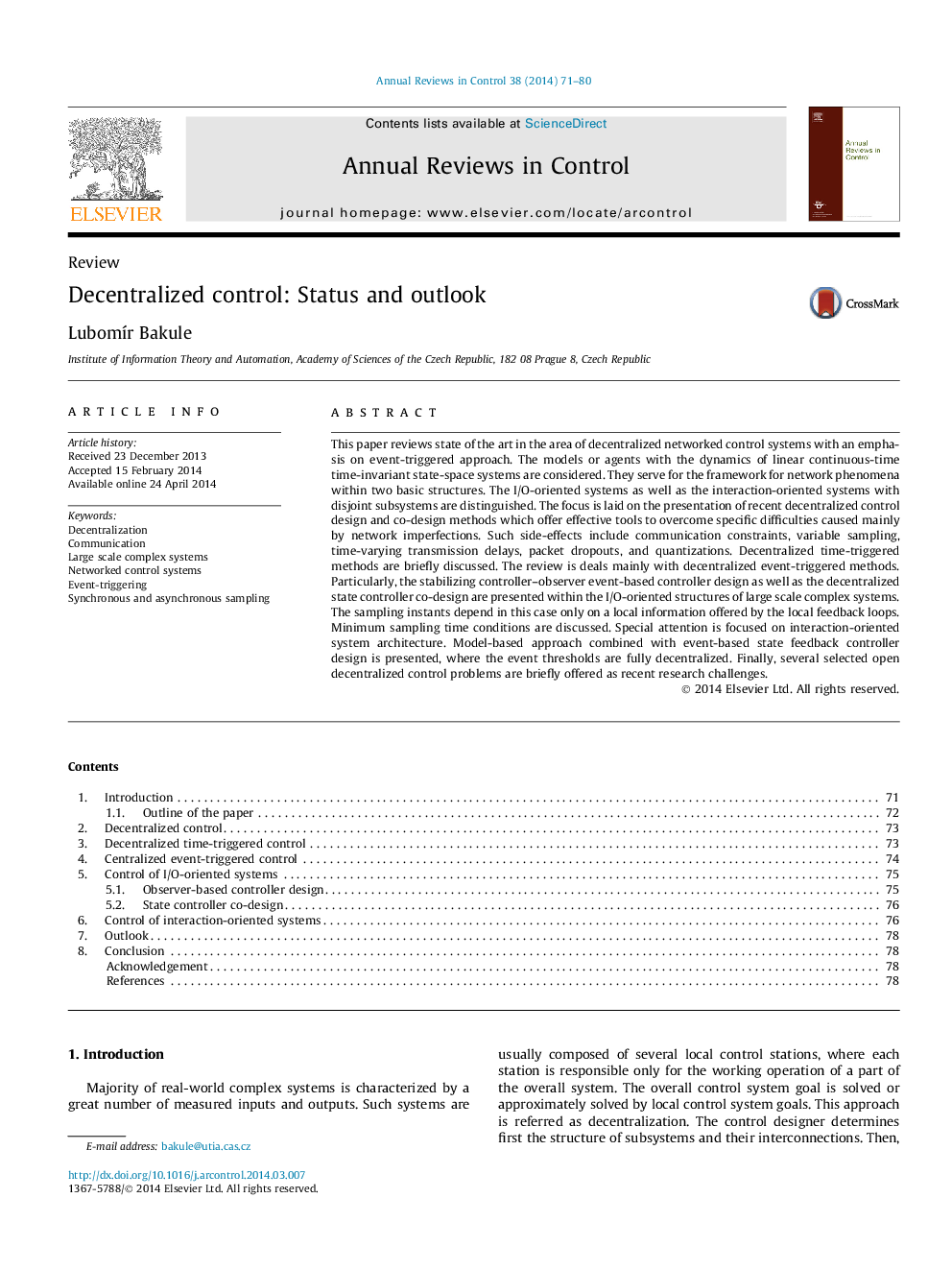| Article ID | Journal | Published Year | Pages | File Type |
|---|---|---|---|---|
| 694721 | Annual Reviews in Control | 2014 | 10 Pages |
This paper reviews state of the art in the area of decentralized networked control systems with an emphasis on event-triggered approach. The models or agents with the dynamics of linear continuous-time time-invariant state-space systems are considered. They serve for the framework for network phenomena within two basic structures. The I/O-oriented systems as well as the interaction-oriented systems with disjoint subsystems are distinguished. The focus is laid on the presentation of recent decentralized control design and co-design methods which offer effective tools to overcome specific difficulties caused mainly by network imperfections. Such side-effects include communication constraints, variable sampling, time-varying transmission delays, packet dropouts, and quantizations. Decentralized time-triggered methods are briefly discussed. The review is deals mainly with decentralized event-triggered methods. Particularly, the stabilizing controller–observer event-based controller design as well as the decentralized state controller co-design are presented within the I/O-oriented structures of large scale complex systems. The sampling instants depend in this case only on a local information offered by the local feedback loops. Minimum sampling time conditions are discussed. Special attention is focused on interaction-oriented system architecture. Model-based approach combined with event-based state feedback controller design is presented, where the event thresholds are fully decentralized. Finally, several selected open decentralized control problems are briefly offered as recent research challenges.
